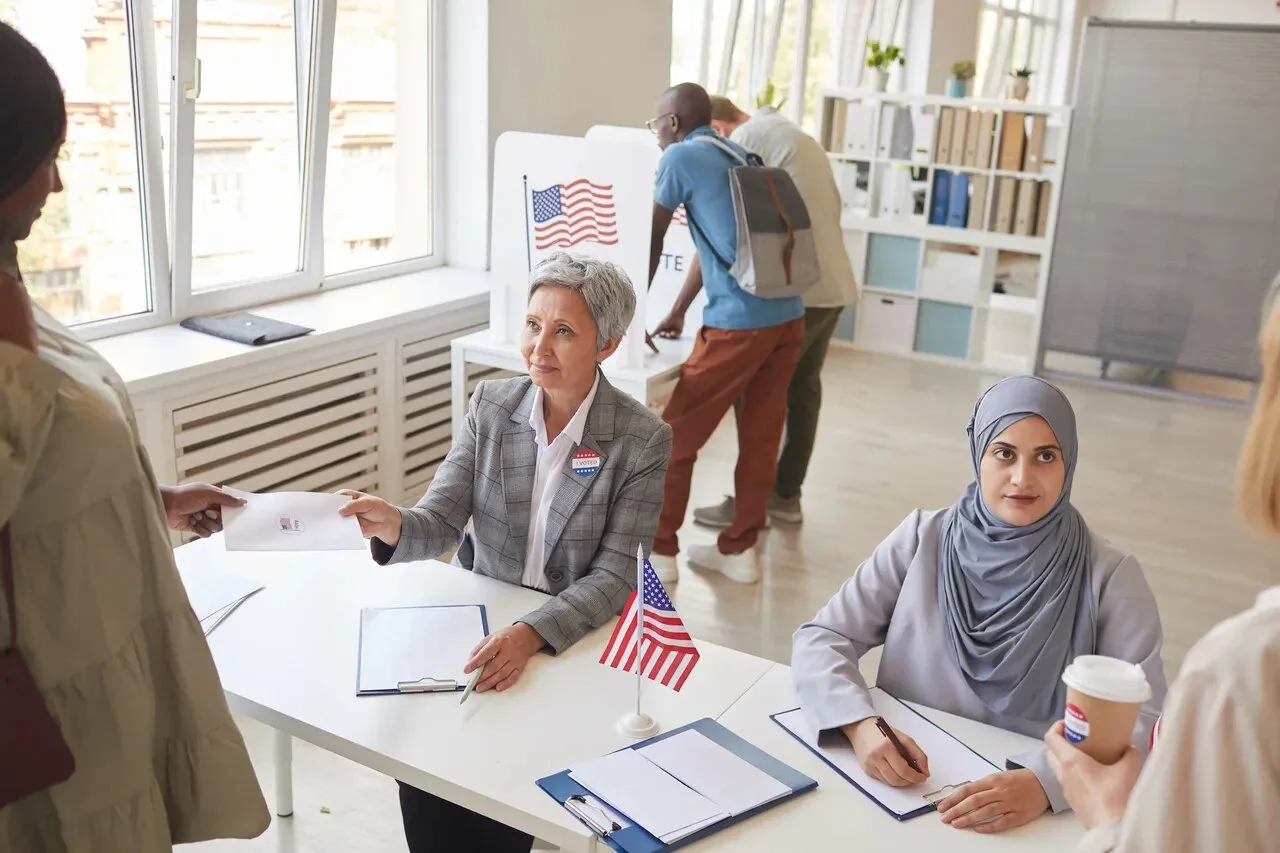What is Voter Suppression and How to Report It
Every eligible voter deserves to have their voice count. It seems simple enough, right? But there are actually people out there to keep that from happening. “Voter suppression” is any effort, either legal or illegal, by way of laws, administrative rules, and/or tactics that prevents eligible voters from registering to vote or voting.
However, this doesn’t mean you should give up on voting. By understanding systems of oppression, you become more prepared to exercise your rights. Here are common signs that this kind of voter suppression could be happening near you:
Polling Place Closures and Consolidation
Eliminating previous polling places makes it harder for people to vote within their neighborhoods, especially when they have to fit in time around their work and family schedules or rely on public transportation to get there. It also means more people at the consolidated polling places, making lines even longer.
Purging Voter Rolls
This happens when a state “cleans out” their list of registered voters, removing folks who they believe have either moved away or died, due to inactivity. When done incorrectly, they can sweep and disenfranchise large groups of eligible voters. In Virginia, nearly 500,000 people were removed from the voter rolls during the last presidential cycle.
This is why it’s so important to check your voter registration status before an election, just to be safe.
Limiting Voting Options Like Mail-in or Early Voting
As we’ve discussed, mail-in voting has been around a long time, and additional options like early in-person voting gives people with demanding work and family schedules a little more flexibility in voting. Restricting this access is a form of voter suppression.
Let’s look at Washington state. All voters automatically receive a ballot by mail, early in-person voting begins three weeks before Election Day, and they can vote on Election Day. They have a lot of options to vote within their schedule. Whereas in Mississippi, absentee ballots must be requested and are only approved if certain criteria are met (though they’ve loosened a bit due to COVID-19 this year), and early-in person voting is not an option.
Inadequate Funds for Election Day Staff and Equipment
Limited funds means that states cannot hire additional poll workers or properly train them on how to use the equipment, causing headaches all around and making it hard for voters to have a good voting experience. Which brings us to...
Long Lines
Lack of poll workers, insufficient equipment, and inefficient systems contribute to long lines. We can all hope that every voter standing in line is willing to stay no matter what, but when you’re faced with waiting for hours to vote, a voter may lose motivation. What about those with accessibility needs? If there aren’t options for accessible voting, they will have difficulty staying in line for a long time.
Remember the 2020 Primary in Georgia? Due to social distancing, there was a decrease in polling machines, which meant that less people could be inside voting at the same time. And with the consolidation of polling places, that resulted in more people at each remaining location, making the lines even longer. Throw in widespread technical difficulties and insufficient resources like not enough provisional ballots, it was a hot mess all around. When the polls closed, there were still hundreds of people still waiting in line.
Gerrymandering
According to the ACLU, “Redistricting refers to the process of redrawing the lines of districts from which public officials are elected. Gerrymandering is when the lines are drawn to manipulate the boundaries to predetermine the outcome of elections, hindering voters from voicing their interests through their votes.” Redistricting should be performed in a fair way that accounts for the size of a district’s population and its racial and ethnic diversity.
Strict Voter ID Requirements
In an effort to prevent voter fraud, some states enforce strict voter ID requirements to be able to vote. This is problematic, as it’s not easy for everyone to have the access or funds to get legal identification. The ACLU reports that up to 25 percent of qualified Black voters do not have government ID compared to only eight percent of white people. Voter ID requirements greatly affect people of color, poor people, the elderly, and young people, due to the cost and travel needed for these people to secure an ID, according to Fast Company.
Have you experienced or witnessed voter suppression? call the Election Protection hotline: 866-OUR-VOTE
You can also sign up to be a non-partisan election protection volunteer.
Good luck and stay safe!

